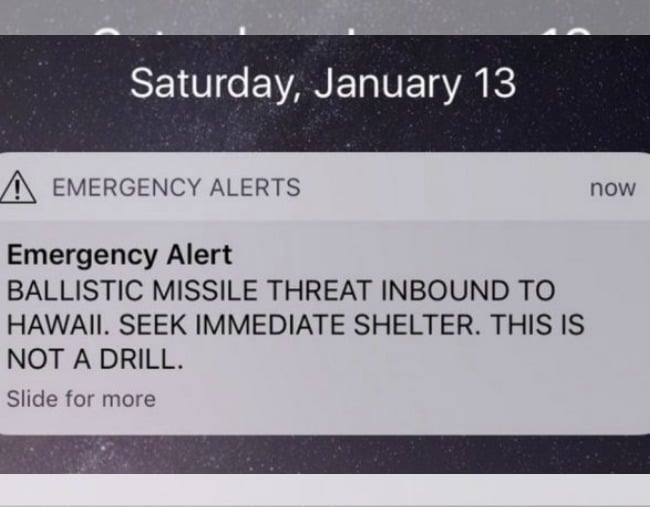
A push alert that warned of a ballistic missile heading straight for Hawaii and sent residents into a full-blown panic on Saturday was issued by mistake, state emergency officials said.
The emergency alert, which was sent to cellphones just before 8:10 am, said in all caps, “Ballistic missile threat inbound to Hawaii. Seek immediate shelter. This is not a drill.” The Hawaii Emergency Management Agency tweeted that there was threat about 10 minutes later. But a revised push alert stating there was no threat went out sometime after that.
Agency spokesman Richard Repoza confirmed it was a false alarm and the agency is trying to determine what happened.
The incident prompted defence agencies including the Pentagon and the US Pacific Command to issue the same statement, that they had “detected no ballistic missile threat to Hawaii.”
Michael Kucharek, spokesman for the North American Aerospace Defense Command in Colorado Springs, Colorado, said NORAD and the US Northern Command are still trying to verify what happened in Hawaii – but that “NORAD did not see anything that indicated any sort of threat to Hawaii.”
HAWAII – THIS IS A FALSE ALARM. THERE IS NO INCOMING MISSILE TO HAWAII. I HAVE CONFIRMED WITH OFFICIALS THERE IS NO INCOMING MISSILE. pic.twitter.com/DxfTXIDOQs
— Tulsi Gabbard (@TulsiGabbard) January 13, 2018
